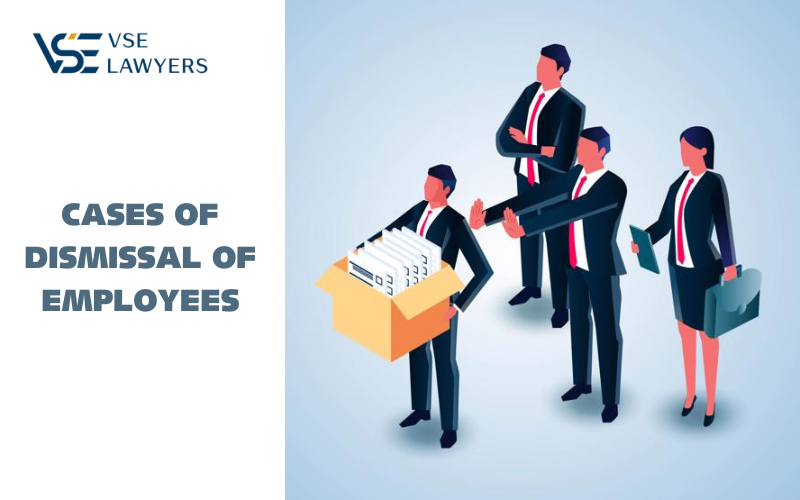CASES OF DISMISSAL OF EMPLOYEES
The dismissal of employees can be done when the employer encounters financial, production or business difficulties, or when there is a change in the company's labor demand. When dismissing employees, employers must follow legal processes and procedures to ensure that workers' rights are guaranteed and legal disputes are avoided.
07/07/2023

The dismissal of employees can be done when the employer encounters financial, production or business difficulties, or when there is a change in the company's labor demand. When dismissing employees, employers must follow legal processes and procedures to ensure that workers' rights are guaranteed and legal disputes are avoided.
I. Definition dismissal of workers?
"Dismissal of an employee" is a term in the field of personnel and employee management, used to refer to the termination of an employment contract between an employer and an employee without the employee's breach of contract. Dismissal of employees can be carried out due to various reasons, such as financial, production or business difficulties, changes in the company's labor needs, or due to violations of the provisions of the employment contract.
However, the dismissal of employees must comply with labor-related legal provisions and must be done fairly and lawfully. The employer needs to notify the employee in advance of the dismissal at least a certain period of time before terminating the employment contract, and ensure full payment of wages, insurance and other benefits to the employee.
II. Cases in which the employer is disciplined for dismissal:
Pursuant to Article 125 of the Labor Code 2019, cases of dismissal discipline include:
• The employee commits acts of theft, embezzlement, gambling, intentionally causing injury, using drugs at the workplace;
• The employee commits acts of disclosing business secrets, technology secrets, infringing upon the intellectual property rights of the employer, causing serious damage or threatening to cause particularly serious damage to the property or interests of the employer or sexual harassment at the workplace specified in the internal working regulations;
• The employee is disciplined, prolongs the salary increase period or is removed from office but reoffends during the period when the discipline has not been removed. Recidivism is a case where an employee repeats a violation that has been disciplined but has not been removed from discipline as prescribed in Article 126 of this Code;
• The employee voluntarily quits work for 05 cumulative days within 30 days or 20 cumulative days within 365 days from the first day of voluntarily quitting without a valid reason. Cases considered to have legitimate reasons include natural disasters, fires, sick themselves and their relatives certified by competent medical examination and treatment establishments and other cases specified in the internal working regulations.
III. Cases in which an employee is not disciplined for dismissal:
According to article 122 of the Labor Code 2019, an employer may not handle labor discipline for an employee who is in the following periods:
• Sick and nursing leave; leave with the consent of the employer;
• Being in custody or detention;
• Waiting for the results of the competent agency to investigate, verify and conclude the violations specified in Clauses 1 and 2, Article 125 of this Code;
• Pregnant female employees; employees on maternity leave, raising children under 12 months old.
• Clause 3 of Article 137 adds the following cases: the employee is married, pregnant, on maternity leave, raising a child under 12 months old, unless the individual employer dies, is declared by the Court to have lost civil act capacity, is missing or has died or the non-individual employer terminates its operation or is posted by a specialized agency business signatories affiliated to provincial-level People's Committees issue notices that there is no legal representative, who is authorized to exercise the rights and perform the obligations of the legal representative.
----------
For more information, please contact:
Hoang Pham (James) / Managing Partner at: hoang.pham@vselawyers.com
© 2023 VSE LAWYERS LIMITED LIABILITY LAW COMPANY – All rights reserved.
Attention: This legal update is not an advice and should not be treated as such.
Subscribe To Legal Advice from VSE Lawyers
If you would like to have any legal questions, please contact us for our advice




